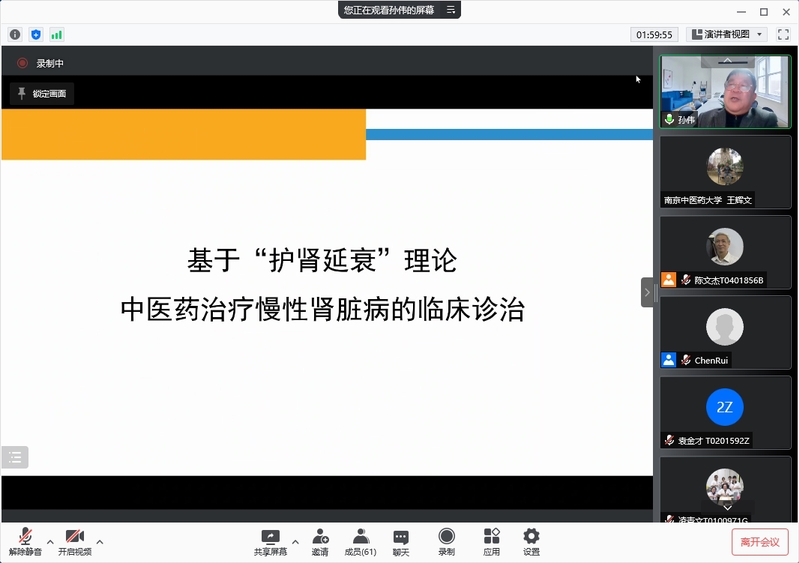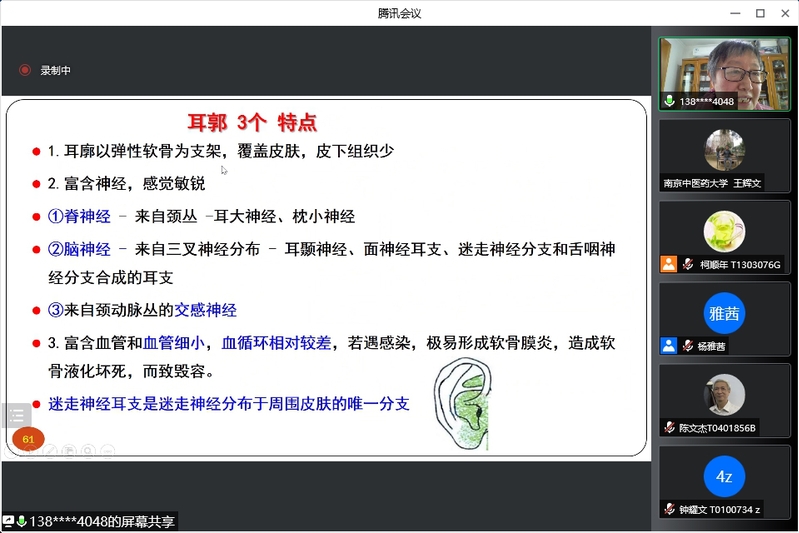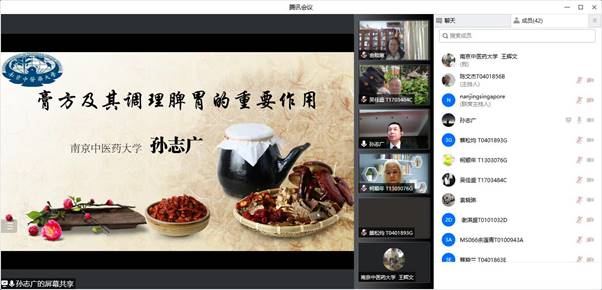

Under the epidemic, NJUCM together with Singapore Alumni Association integrated digital technology into the traditional education model, and created international cloud-based classrooms which will not be limited by time and space. By the end of April, 465 local TCM practitioners in Singapore had received teaching and training by eminent TCM physicians on the cloud.

Professor Sun Wei, Director of the Department of Nephrology of the First Affiliated Hospital of NJUCM, condensed his 40-year clinical experience in medicine into a series of 4 lectures, on the theme of “Understanding and clinical application of the core pathogenesis of chronic kidney disease ‘kidney deficiency, damp phlegm and blood stasis pattern’”, “Recognition of the pathogenesis of damp pathogens in chronic kidney disease and clinical application of heat-clearing herbs”, and “Clinical practice of TCM in controlling proteinuria and delaying the progression of renal failure”. Based on the theory of protecting the kidneys to slow down the aging process, he explained to Singapore alumni the importance and scientific application of the wisdom of Chinese medicine in treating diseases and the clinical thinking of Chinese medicine.

The professors were prepared to give targeted lectures according to the climate and features of life in Singapore. Professor Wang Lingling, former doctoral supervisor of the Second Clinical Medical College of NJUCM, has been invited to visit Singapore many times before, and has worked in Singapore College of Traditional Chinese Medicine for many years. Despite her retirement, she still gave a keynote lecture on Advantages of Acupuncture in Treating Physical and Mental Diseases in combination with the fast-paced nature of Singapore society.
As the Chinese Director of the Chinese Medicine Confucius Institute, Associate Professor Yuan Xiaolin, School of TCM and School of Integrated Traditional Chinese and Western Medicine, NJUCM, focused on the characteristics of Singapore's hot and humid climate, combined with her own research on the “Synopsis of Golden Chamber”, and made a speech on the Explanation of “Prescription Differentiation and Treatment of Arthralgia Syndrome in ‘Synopsis of Golden Chamber’”. Singapore is close to the equator, with high temperature and humidity all year round, so it has showed a high incidence of bone and joint diseases. This lecture helps to solve some related clinical problems.

Professor Sun Zhiguang, Vice President of NJUCM, combined his years of research and clinical cases in the field of spleen and stomach gastroenterology. With the speech title of Gaofang and its important role in regulating the spleen and stomach, he let the Singapore TCM practitioners living in tropical areas re-understand the functions and preparation process of Chinese herbal ointment. The alumni said that in the future, they will try to learn how to make Chinese herbal ointments and promote them in Singapore.
In the face of the current complex international epidemic situation, NJUCM School of International Education and International Cooperation and Exchange Office will continue to rely on its deep accumulation of international cooperation, explore high-quality resources for international education, and use cloud classrooms and models to build an international “cloud” brand of TCM education with the spirit of craftsmanship.




